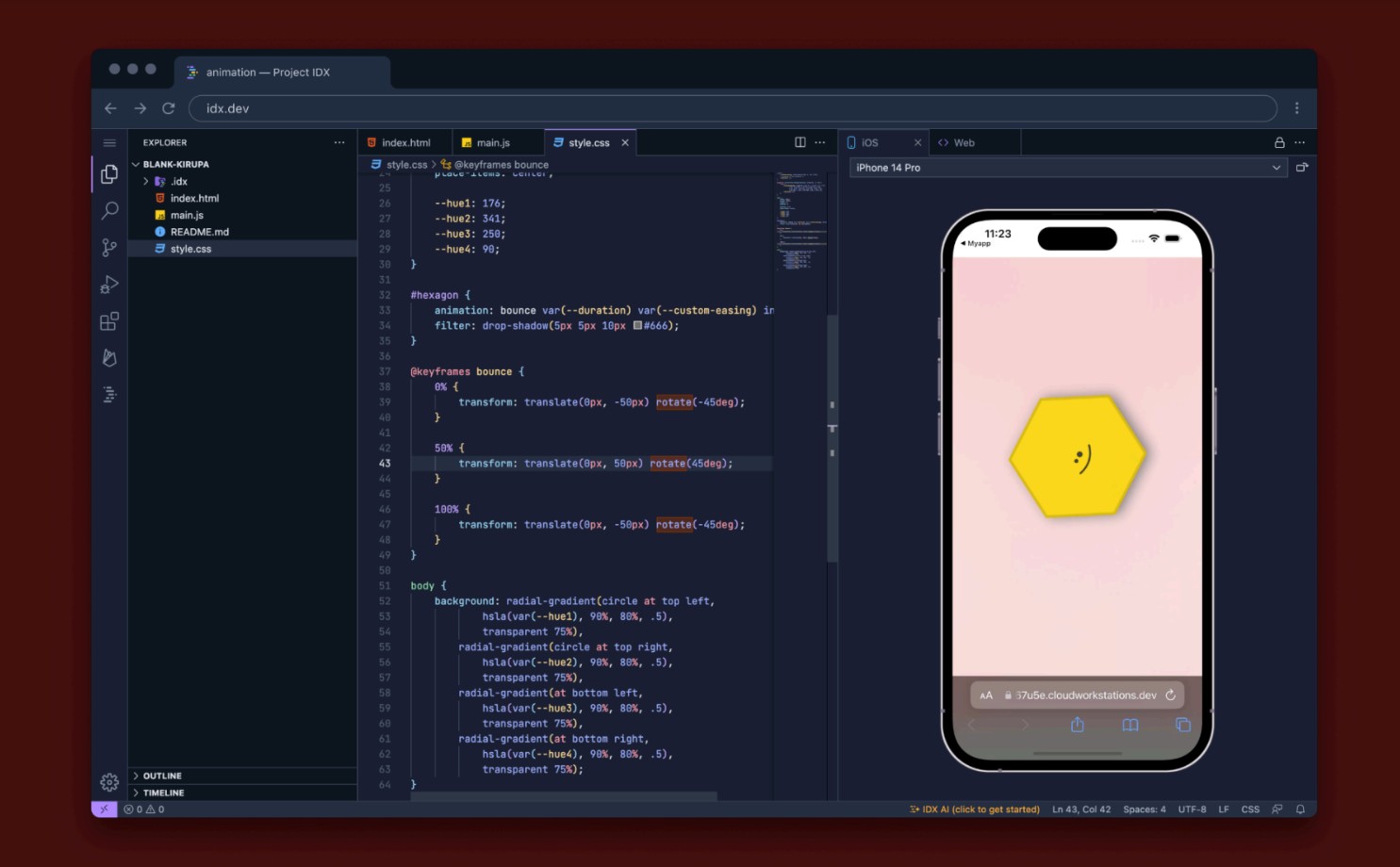Last summer, Google launched Project IDX, its experimental web-based full-stack development environment with built-in support for Codey (Google’s version of GitHub Copilot) and Flutter (Google’s cross-platform development framework). With today’s release, Google is delivering on several promises it made when it first launched Project IDX, including the addition of built-in iOS and Android simulators in the browser. Among a few other updates, the team is also adding new templates for Astro, Go, Python/Flask, Qwik, Lit, preact, Solid.js and Node.js.
Clearly, though, the highlight of the release is the addition of the iOS and Android Emulators. This will allow developers to preview their applications, no matter whether they are web or Flutter apps, without having to ever leave Project IDX. Typically, this would be a multistep process that would take developers out of their flow, slowing down the overall process and introducing complexity.

Image Credits: Google
IDX itself makes extensive use of Nix, the increasingly popular package management and system configuration tool (and Linux distribution). “IDX uses Nix to define the environment configuration for each workspace to give you flexibility and extensibility in IDX — even our templates and previews are configured using Nix to ensure they’re working correctly inside IDX,” the team explains in today’s announcement. With this update, developers can now customize these Nix-based templates, while the IDE is getting syntax highlighting, error detection and code completion support for Nix files.

Image Credits: Google
Google is also now making it easier for developers to work with Docker containers by letting them enable Docker right in their Nix configuration file.
One thing that isn’t changing, though, is that Project IDX remains a bit of an experiment for Google. We didn’t hear much about it after its initial launch phase and you still have to request an invite to get started. There is a lot of skepticism among developers about Google’s commitment to keeping projects like this alive in the long-term, and the “experimental” label surely huts the overall perception of Project IDX. At least it’s good to see that it’s still moving ahead, though.
techcrunch.com




